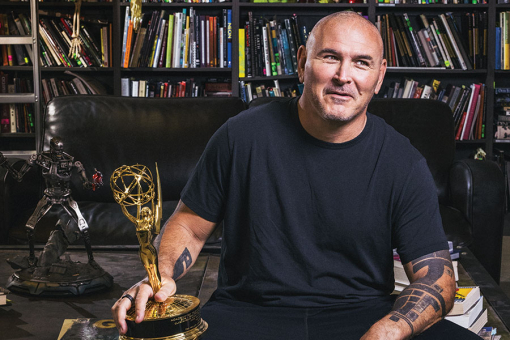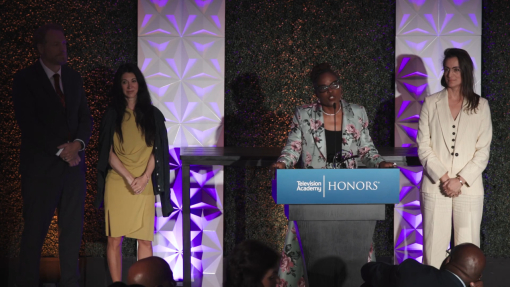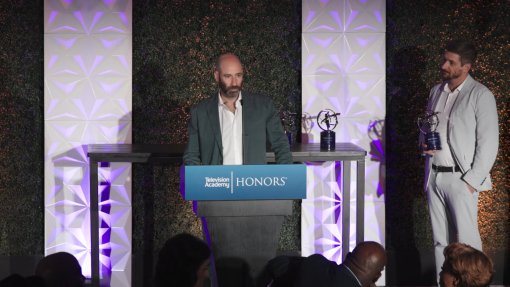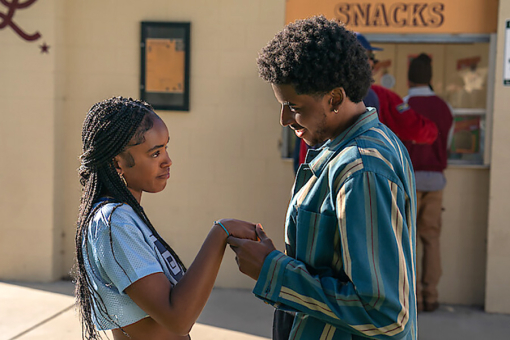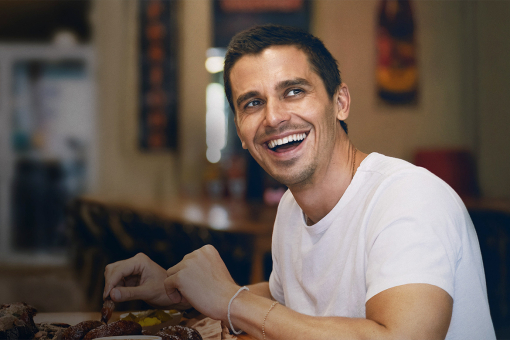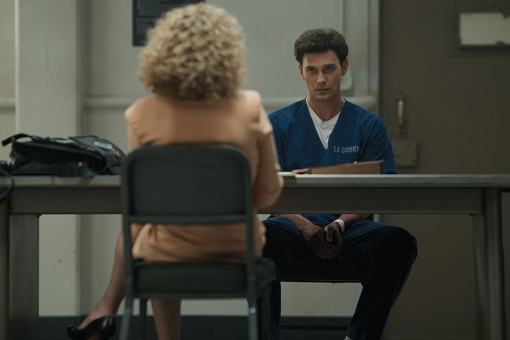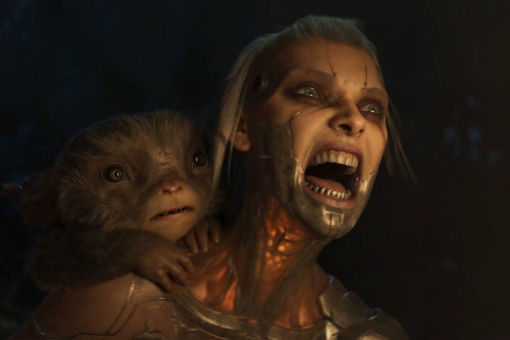It happens a few times a day, at least. Phil Rosenthal will be walking on a street and a nice stranger inevitably stops him to gush or ask for a photo. “I always say it’s very strange to wake up at this age and find yourself being Taylor Swift,” he says.
Well, that’s what happens when you embark on a prolonged and popular world tour.
Though he became a TV titan thanks to creating the 16-time Emmy-winning sitcom Everybody Loves Raymond, Rosenthal has reinvented himself as a gung-ho global foodie via Netflix’s hit unscripted food and travel series, Somebody Feed Phil. Since 2018, the congenial host, writer and producer has given viewers a treat by eating his way through mouth-watering destinations with self-deprecating humor and unbridled joy. The show has been nominated for two Emmys as well as a James Beard Award.
"I think Netflix loves us because we’re cheap and people love us because we’re sweet," says Rosenthal, who also serves as an executive producer. "I’m not showing you the world the way I wish it was — I’m showing you the way I really find it. If you get a nice feeling or it makes you laugh, that’s what we’re here for."
For his eighth season (which started streaming on Netflix on June 18), Rosenthal goes on culinary adventures in Amsterdam, Australia, Manila, Guatemala, Spain, Las Vegas and Boston. He raves that one of his favorite stops — San Sebastian, located in the Basque Country of Spain — features more Michelin-starred restaurants than anywhere in the world. "I’ve had one of the best meals in my life at a place called Etxebarri," he adds. "Every single dish is cooked by one man over an open flame!"
Rosenthal is so busy collecting passport stamps — he also does a live show to share stories about his career, travels and love of food — that he doesn’t watch as much new TV as he wants to. And that’s saying a lot considering that Rosenthal admits that he "grew up only watching TV!" In fact, he had a tough time winnowing down his My Seven Shows list ("It’s not fair!"). He also refused to include any show on his long resume that dates all the way back to a 1990 writing credit on a series called A Family for Joe. So what did Rosenthal pick for the Television Academy? Here’s the dish.
The Honeymooners (1955-56, CBS)
 Photo by: CBS/Paramount
Photo by: CBS/Paramount
When I was a little kid in Queens, this show made me laugh uncontrollably. At first, I thought, “I want to be an actor,” because I didn't know there was writing and directing. I just wanted to be funny like Ralph (Jackie Gleason) and Ed Norton (Art Carney). I could imitate them as a little kid — that got the attention of my parents and their friends — and I made them laugh. Then, of course, I had to be in the school plays. And that led to this career.
The Mary Tyler Moore Show (1970-77, CBS)
Here is a show about a single woman — which you hardly ever saw, except for That Girl. This was a modern iteration of that. And it was just fantastic because it was so smart and subtly sophisticated. There were so many great characters that many of them had spin-offs. Ed Asner had a spin-off (Lou Grant). Valerie Harper had a spin-off (Rhoda). Cloris Leachman had a spin-off (Phyllis). And the Ted Baxter character (played by Ted Knight) was so hilarious. Everything just clicked.
The Odd Couple (1970-75, CBS)
 Photo by: CBS/Paramount
Photo by: CBS/Paramount
For the first season, they filmed it single-camera style, and it didn't work very well. But the moment they had a studio audience, I was sucked in. There was great acting and great writing. There were long scenes, like in the theater. You know, a lot of modern TV dazzles you by cutting all the time: "Now we're in the coffee shop. Now we're in the living room. Now we're in the bathroom. Now we're upstairs. Now we're outside. Now we're in another country. Now we’re back." I call it "the illusion of entertainment." You think you were entertained because you saw a lot of images flash before your eyes — and time passed quickly. But to me, the time passes even faster when you're involved in the story, the characters and their relationships. The Odd Couple did this.
All in The Family (1971-79, CBS)
I always say that television can be broken into “B.N.” and “A.N.”: “Before Norman Lear” and “After Norman Lear.” Before Norman Lear, sitcoms were mostly silly and high-concept, like I Dream of Jeannie and Bewitched. But All in the Family was ultra-realistic. You believed it took place on Earth. You believed the conflicts and the politics. As a 10-year-old watching it, I loved that the relationships were so well drawn and the writing was so good and the acting was so fantastic. All of that really formed my sensibility about the kind of work I wanted to do. When I was pitching Everybody Loves Raymond, CBS executives said: “What do you want the show to be like?” I pointed to a picture of All in the Family on the wall and said, “I'd like it to be like that.”
Taxi (1978-82, ABC; 1982-83, NBC)
Almost all of it took place in that garage — which, again, just shows you don't need a lot of scenes. It’s just a great night in the theater watching a great comedy. Another key to having a great sitcom is having a great basketball team — you can pass the ball to anyone and they can score. That's what you had here with the cast. You had another great center of a show with Judd Hirsch. Andy Kaufman was in a world of his own and Danny DeVito was absolutely brilliant. [DeVito’s] character wasn’t likable, but he was lovable, because he killed you with laughs. When we were making Raymond, some people would say, “I don’t know about this, because the family is unlikable.” I would say, “Let me ask you something . . . who in your family is likable?”
The Simpsons (1989-, Fox)
 Photo by: Fox/Gracie Films
Photo by: Fox/Gracie Films
I’m going to say The Simpsons, because I think you have to. I think it's landmark television and, obviously, a worldwide phenomenon. At this point, it's an institution. Maybe it’s had a few ups and downs, but the fact that the writers can still knock out episodes that are great after 35 years, like, come on! I admit that I don't watch it regularly but, when I do, I'm still amazed at the level of writing.
Breaking Bad (2008-13, AMC)
I’m going to pick a drama. Breaking Bad showed you just what a TV series could do. I watched it from the beginning. It had a tremendous premise, and the execution exceeded the premise — it was even better than what it claims to be about. The writing, acting and directing were on a level that you don't see in movies anymore. Well, maybe in the 1970s, but not now. And each season got better and better until a thrilling finale.
This interview has been edited for length and clarity
Somebody Feed Phil is now streaming on Netflix.





